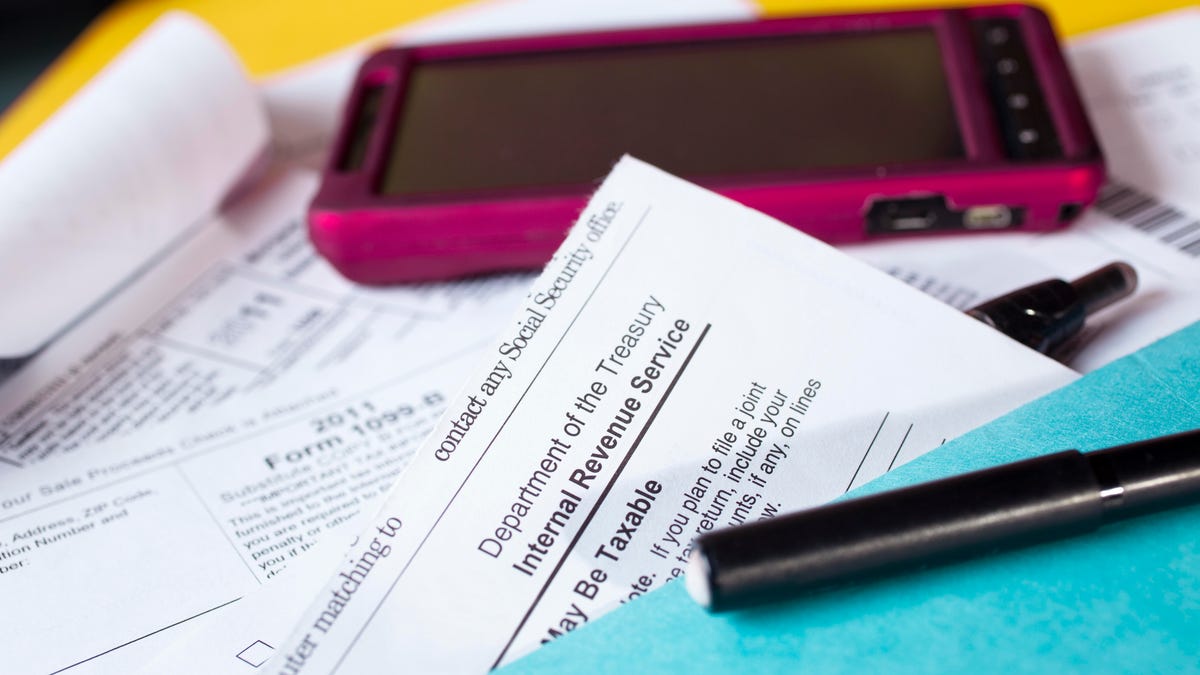What to do if you can't pay your tax bill
If you owe the government money, what if you can't afford to pay? Here's what to do.

If you're calculating your tax return only to discover it's a tax bill, you're not alone. Last year, an estimated 30 million people owed taxes.
So if you owe the government money, what should you do if you can't pay your tax bill? First: Don't panic. There are 5 million people who need payment assistance every year. Take these steps to avoid facing a hefty penalty from the IRS.
1. File anyway
Filing and owing money leaves you in a much better situation than not filing at all. Skipping out on your tax bill is similar to missing any other kind of important bill or payment. You'll rack up hefty penalties and fees, causing you to owe more than you originally did. The late payment penalty is 5% of the balance per month for every month you don't file.
Not paying your tax bill can have big consequences. It can cause the government to garnish your wages or take the money straight from your bank account. You could also face getting a tax lien on your property, which could force you out of your home.
Read more: Best tax software for 2020
2. Contact the IRS
As soon as you know you won't be able to afford your tax bill, call the IRS at 800-829-1040. Depending on your situation, you could be eligible for an extension to pay or another agreement.
If you have the means, pay as much as you can. This shows the IRS that you do have some funds to pay your tax bill and you don't want to avoid it. It proves you're being responsible rather than ignoring your bill.
3. Ask for an extension
If you need more time to gather up the funds, the IRS might agree to a short-term extension on your bill. They may allow up to 120 days to pay your bill without an extra penalty. But keep in mind if you don't pay by the deadline, you could build up outstanding fees and charges. It's a good idea if you can to avoid a payment plan since those include an installment fee.
4. Get on a payment plan
An installment plan allows you to pay the government a set amount depending on when you get paid and how much you can afford. You'll make ongoing payments until your tax bill is paid in full.
There are different payment plans available, depending on your financial situation. You'll need to complete IRS Form 9465, which is an Installment Agreement Request. This form lets you request a monthly installment plan from the IRS. You might face some fees, such as a $10 user fee. You're guaranteed to get an installment agreement if you're current on your taxes, you owe less than $10,000 and you agree to repay your bill within three years.
Keep in mind that payment plans charge interest. Currently, the interest rate is 3% and it compounds daily.
5. Request an Offer in Compromise
An Offer in Compromise (OIC) is settling with the IRS on an amount less than what you originally owed. If you have no way of paying your full debt and you have no assets, or if paying your tax bill would cause financial ruin to your everyday living expenses -- like you'd miss a rent payment, for example -- an OIC would be a good option.
You can submit an application, but that doesn't mean the IRS will approve it. You'll be evaluated and verified by the IRS to see if you're eligible for an OIC. There's a $186 application fee, although there's an exception for low-income earners.
If you qualify and are approved for an Offer in Compromise, you can pay either in one lump sum or monthly payments, up to 24 months. Even while the IRS is evaluating your eligibility, you're still required to make monthly payments to avoid getting denied.
Read more: The best cash-back credit cards for 2020
A few more things to think about
So again, before freaking out, remember that your situation isn't unusual. Talk to the IRS about your options if you're not sure you'll be able to pay your bill in full on Tax Day.
You may also want to see what your withholdings are on your paycheck. Ask Human Resources if they'll go over what's being taken out. Sometimes not having the correct withholdings can cause you to owe money on your taxes. If you have a side hustle, you might owe more taxes because of that.
Don't be afraid to talk to a qualified tax professional about your situation. Not all experts are created equal (and some aren't even real), so make sure to thoroughly vet your potential tax professional before handing over personal documents. You may even find that getting professional help made the difference between owing money and getting a refund.

